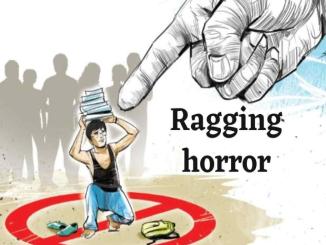
Yes today, 19th November 2016, is the International men’s day. International Men's Day (IMD) is an annual international event celebrated on 19 November.
New Delhi, International Men's Day (IMD): Every year since 1992, the 19th November is celebrated as International Men's Day around the world. The main objective of this day event is to celebrate the existence of the gender, their contribution to the society and to improve gender biasedness towards man.
However in India, which is an Olders society on a larger basis, there are still some laws which are unfair towards men and are a hurdle in the goal of gender equality. These laws were apparently made after considering the violence committed on women. But most of them are illogical and were irrelevant in that era also.
Laws biased towards men
- A boy under 16 years of age has consensual sex with a girl of his age, he's a rapist.
According to Section 375 of the Indian Penal Code , if a 16-year-old guy and girl have sex, she's been raped! 'Sex' without consent is 'rape' but this law directly refuse to obey the concept of consent.
- Only the man is prosecuted for adultery, not wife.
According to Section 497 of the Indian Penal Code, if the husband commits adultery with the wife of another man, he can be prosecuted for the same. But if a woman commits adultery with the husband of another woman, she cannot be prosecuted. This totally unfair towards men.
- A boy is entitled to maintenance only when he turns 18, whereas a girl is entitled to maintenance till the time she gets married.
This law was made at a time when women were only supposed to do household chores and getting them married was the prime goal of their family. Although Indian society doesn't literally use this law but it's totally irrelevant today.
- The father of the deceased doesn't inherit property, but the mother does
Under the Hindu Succession Act of 1956 , if the deceased has no will, the spouse, mother and children inherit the property belonging to the deceased. The father is only entitled if the deceased does not have a spouse, mother or children. On a related note, there were laws which held male child the inheritor of his father's property. It was later rectified with clause that female child have a right to them too. However, the same improvisation was not applied to this law.
- If a woman is treated with physical or mental cruelty by her husband and his family, He can throw them behind bars.
No doubt this law made to stop the rising domestic violence against women was a very good step. However, it is the most misused law in India. The reason behind it lies in the Section 498 A of the Indian Penal Code which says that the woman doesn't need to give any evidence whatsoever. No wonder, there are high numbers of false cases.
- If the death of the woman is caused by burns or bodily injury within 7 years of marriage, it's the husband's fault
It's hard to believe but yes this law does exist in the Indian constitution. According to the Section 304 B of the Indian Penal Code, the husband will be held responsible for her death even in a house fire which he wasn't aware of.
- Men can be raped, stalked, sexually harassed and it will not be considered an offence
The Criminal Law (Amendment) Act, 2013 was an improvisation, after the murder of 'Nirbhaya', the victim of Delhi gangrape case on Dec 16, 2012. The country saw a huge revolution after her death with thousands of people coming on the roads to demand justice for her. However, some of the feminists of the countries demanded this amendment in which the sexual offence were no longer gender-neutral.
The law directly refuse to believe that these offences are committed on men too. Even before the amendment, there were only a few men who dared to disclose that such heinous crimes were committed on them. But the law makes that even more impossible. On the other side, it refuses the existence of marital rape. Way to go logic. The law has been strongly criticised by several human rights and women's rights organisations as well.
However, there are good reasons to worry about male equality. When it comes to education attainment, in particular, it’s the boys who are falling behind



























